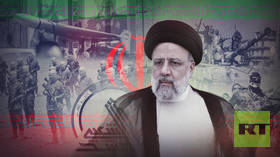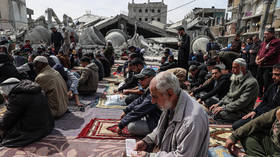‘Islamic world will celebrate the destruction of Israel’: Is war inevitable between Tehran and West Jerusalem?

The Israeli strike on the Iranian consulate in Damascus on April 1 left political experts and millions of people around the world wondering whether the attack will lead to a direct war between the two nations. Iran has every reason to retaliate, since the Vienna Convention on Diplomatic Relations of 1961 is still in force. Tehran could respond either by striking the Israeli diplomatic mission on the territory of another country, or by directly attacking Israel. However, this course of action would be too predictable and could lead to a full-scale war with unforeseen consequences. Israeli Prime Minister Benjamin Netanyahu has declared that he is ready to take harsh action in such a case. According to Netanyahu, Iran has acted against Israel for years, and Israel will respond to any threat to its security. In other words, if Iran strikes Israel, war is inevitable.
The death of the high-ranking Iranian General Mohammad Reza-Zahedi forces Tehran to respond, but the further development of events will depend on what this response looks like and what reaction follows. Zahedi was an iconic figure in the Islamic Revolutionary Guard Corps (IRGC) and in recent times was often compared to the legendary General Qasem Soleimani, who died four years ago in a US airstrike near Baghdad. According to the Coalition Council of Islamic Revolution Forces – a conservative coalition of parties close to the Supreme Leader of Iran, Ayatollah Ali Khamenei – Zahedi was directly involved in the planning and implementation of Operation Al-Aqsa Flood, which Hamas launched against Israel in October 2023. The deceased general was an important “link” between Tehran and Damascus, as well as Tehran and Hezbollah in Lebanon, and also instructed Hamas militants in conducting military operations against the Israel Defense Forces (IDF).
In addition to Zahedi, General Mohammad Hadi Haji Rahimi and nine (or 11, according to other sources) Iranian diplomats were killed during the strike. While at first the Israeli side tried to deny any involvement, it was immediately clear that West Jerusalem was behind it. In order to justify its actions, the Israeli side claimed that the Iranian consulate was used by Tehran as the headquarters of the IRGC and Hezbollah. Iran did not confirm this information, but did not deny it either. This is understandable, since there’s nothing illegal or unusual about military advisers, military attaches, and generals being on the premises of embassies and consulates. However, according to international rules, even during war, embassies and consulates cannot be attacked, and a direct strike on any country’s diplomatic mission is equivalent to declaring war on that country.
Iran may have expected something like this to happen sooner or later – but certainly not on April 1, 2024. The Iranian Consulate was located in the Mezza area of Damascus. This area has been often subjected to Israeli airstrikes since an airbase and storage facilities are located there. The airbase was used for the transit of Iranian weapons, military gear and equipment, as well as for the military needs of the Syrian Army and the Hezbollah movement, which Iran also supports. After the tragic events of October 7, 2023, Iran stopped delivering equipment to the base by air, and instead used an overland route, which was difficult for US and Israeli intelligence to track. Three days after the incident, Supreme Leader Ali Khamenei posted on X (formerly Twitter) in Hebrew, vowing retaliation for the strike on Damascus. He said that Israel would repent for the crime, and a few days later, at a meeting with senior Iranian officials and ambassadors of Islamic countries on the occasion of Eid al-Fitr, Khamenei declared that Islamic countries that cooperate with Israel, supply weapons or provide financial assistance to the Jewish state are traitors. Experts were concerned that Khamenei made a fateful decision that day, and had essentially declared war. However, it should be noted that Khamenei is known for his harsh rhetoric against Israel. For example, some time ago, he directly stated that “in the future, the Islamic world will be able to celebrate the destruction of Israel.”
Anti-Israeli sentiments have always been strong in Iran, particularly among the influential Muslim clergy who are close to Khamenei. However, Israel had not previously openly attacked Iranian diplomatic institutions, meaning the confrontation has reached a new level. This begs the question: does Iran indeed want war, and is it ready for a conflict?
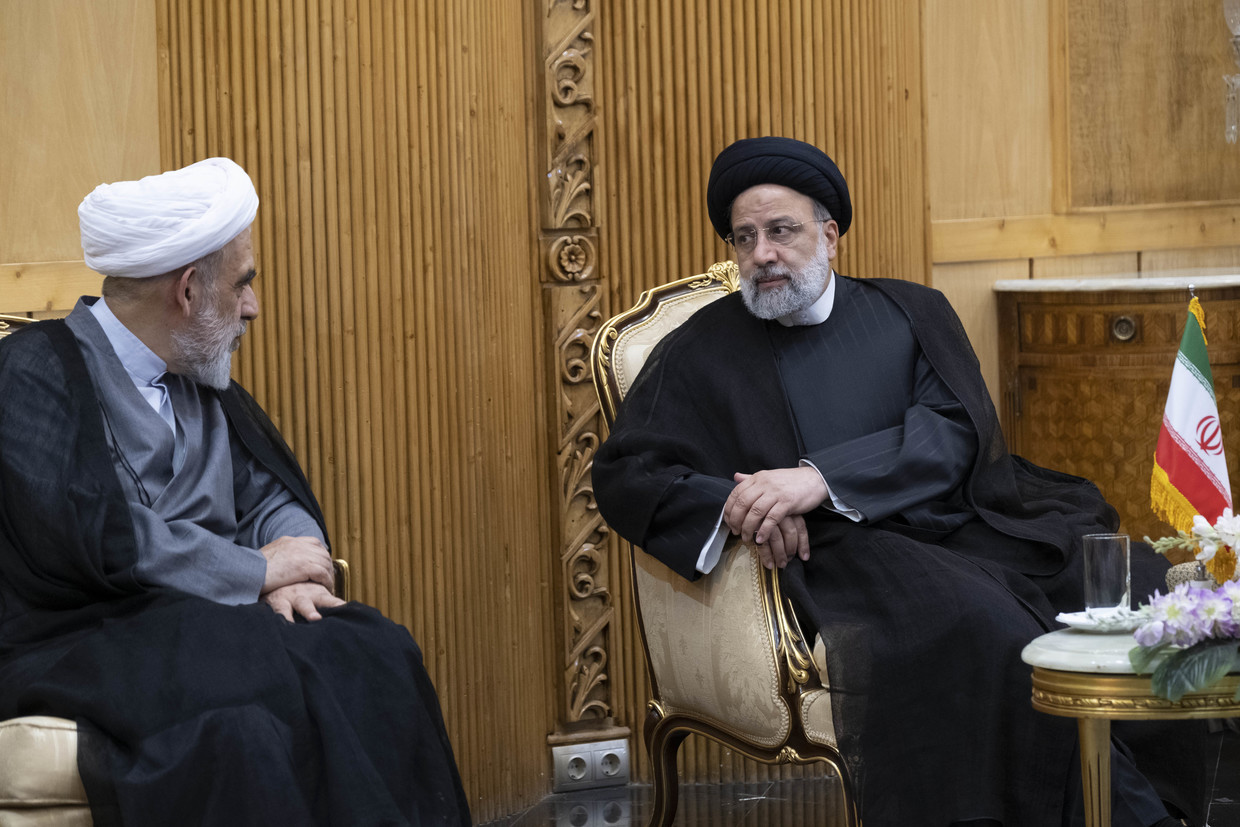
Does Iran want war?
There is no doubt that Iran has a strong military force and can stand up for itself. The country’s population is growing rapidly and has increased by 10 million people over the past 11 years. Many men want to serve in the army, motivated both by active propaganda efforts and government benefits. However, Iran has long refrained from becoming involved in direct combat, and the situation on the border with Lebanon and Syria has remained under control, except for some intense but localized clashes. Tehran stated that it had nothing to do with the conflict between Hamas and Israel which started after the Palestinian militant group’s attack on October 7, and even Israeli representatives have reluctantly admitted they are not directly fighting against Iran. Back in November, during a meeting with Hamas representatives in Tehran, Khamenei told the group that Iran would not go to war with Israel. He said Hamas had not warned Iran about its attack on Israel, and that Tehran does not intend to fight on behalf of the militant group. However, it is ready to provide political support and supply weapons. This does not mean that Tehran is afraid of war or is not ready for it. Rather, it does not see any reason to enter into a large-scale conflict with Israel. Loud statements by Iranian politicians such as “death to the United States!” or “death to Israel!” should be regarded only as political slogans used to fuel Iran’s present-day ideology. Of course, the current Iranian leadership considers the US and, to a greater extent, Israel, as its opponent and enemy. But this does not mean that Tehran is really trying to destroy both countries. For modern Iran, the Jewish state is only a political player which, according to Iranian imams, oppresses Palestinians.
On the other hand, Tehran is aware that the West Bank does not really support its brethren in Gaza, and Palestinian President Mahmoud Abbas merely utters routine phrases in condemnation of Netanyahu. Consequently, Iran poses a completely natural and logical question – why should it rush to the aid of those who do not want to fight for their own rights and existence? Does it make sense for Iran to be more “Palestinian” than the Palestinians themselves? Incidentally, Iran hasn’t forgotten its own confrontation with Hamas during the “hot phase” of the Syrian civil war, when the militants played along with Israel and sided with the Free Syrian Army, which was opposed to Syrian President Bashar Assad, whom Tehran supported. So in this respect, the situation is quite ambiguous.
Iran is a country with a rich history, and it has always relied on historical memory and its ability to sense the political climate in the region. This has often saved it from falling into traps set by its opponents. In many ways, the Israeli strike on the Iranian consulate looks like a plan to lure Tehran into a trap from which it may never be able to free itself. The Iranian elites are divided on the issue of Israel (as on many others). Khamenei’s inner circle consists of two factions: the army of clerics, and the military generals of the IRGC who influence certain foreign policy decisions. Both sides are quite influential and are supported by different parts of society. There is also Iranian President Ebrahim Raisi who, de jure, is not responsible for the country’s security and foreign policy, but only for the economy and humanitarian issues. However, Khamenei pays attention to Raisi’s opinion. Moreover, after some time, Raisi may succeed Khamenei as Supreme Leader.
The clergy traditionally adopt a “hawkish” position. They want to deal a serious blow to Israel for two reasons. The first is that Iran has a moral right to respond in kind, otherwise the country will not “save face” and this will cause criticism both inside and outside the Islamic Republic. They believe that Iran’s image will seriously suffer, and this will disappoint those who are loyal to Iran. The second reason is that, sensing the weakness of Iran, Israel may repeat such an attack. Moreover, the clergy perceive the strike as a double slap in the face, since it took place on April 1 – the exact day when 45 years ago, in 1979, Iran was declared an Islamic Republic following the referendum and the Islamic revolution. In the east, people are very attentive to symbolism, and Tehran believes that Israel’s actions have demonstrated that it does not respect Iran’s current regime. If Tehran doesn’t retaliate, it may look like Iran is too weak to punish Israel and Khamenei’s words may be taken as yet another “last warning made by Iran.”
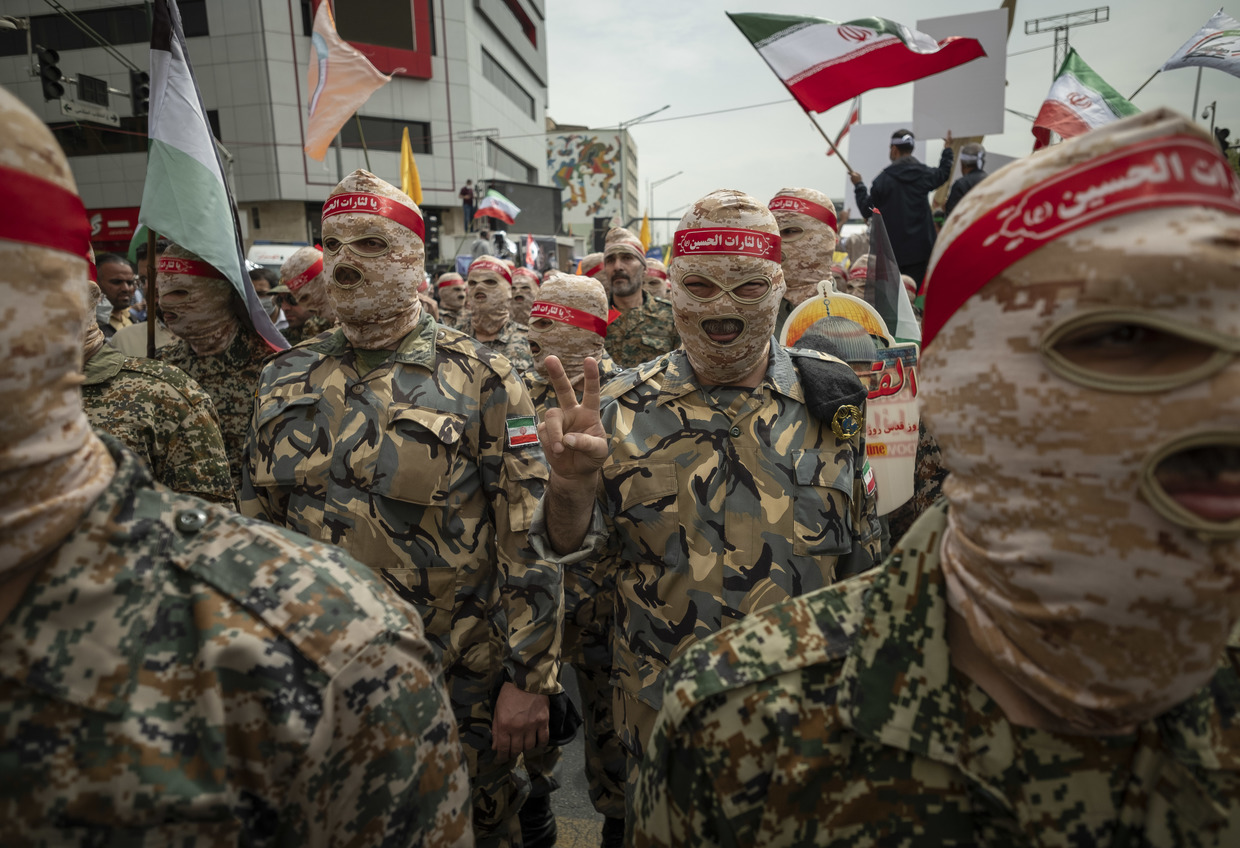
The no less influential IRGC generals are also convinced that Iran should respond, although they believe any retaliation should not lead to the outbreak of a full-scale war. The IRGC is not interested in conflict, because it understands that Netanyahu’s provocative actions may be intended to draw Iran into a big war, which may end badly for Tehran. President Raisi has similar views. Despite the fact that he sides with conservative forces, he is an advocate of harsh words but pragmatic actions. Paradoxically, the development of the Iranian nuclear program also testifies to the country’s efforts to maintain peace. Tehran believes that the presence of nuclear weapons in the country will stop Israel and any other opponents from taking aggressive action against it. In this regard, Iran draws on the experience of North Korea.
Meanwhile, the West has also expressed its opinion regarding the escalation of the conflict. US President Joe Biden said Washington will provide all the necessary assistance to Israel in light of the threat from Tehran and its proxies, noting that its security obligations to the Jewish state are “indestructible.” However, the European Union has actually taken the opposite stance. Brussels condemned Israel’s actions against the Iranian diplomatic mission and called on the parties to show restraint and prevent the further deterioration of the situation in the region. Moreover, the European External Action Service published a press release in which it emphasized the need to respect the principle of inviolability of diplomatic and consular buildings and personnel in all circumstances, in accordance with international law.
This situation has revealed obvious contradictions between the different centers of power in the West. These contradictions between Western countries have become apparent for the first time in the past several years (with the exception of some formal details on the Ukraine conflict). However, both the US and the EU are afraid of a sharp spike in oil prices in the event of a major war between Iran and Israel. Iran is one of the world’s major suppliers of energy resources and a hot war could provoke a large-scale economic crisis – something that Europe clearly wants to avoid. Tehran also believes that in reality, the Biden administration was behind the Israeli provocation, and that the US is merely using Netanyahu to try to eliminate Iran, which refuses to play by the American rules. In other words, Netanyahu could have unwittingly followed a clever plan which the White house devised in order to solve two problems at once and come out victorious.
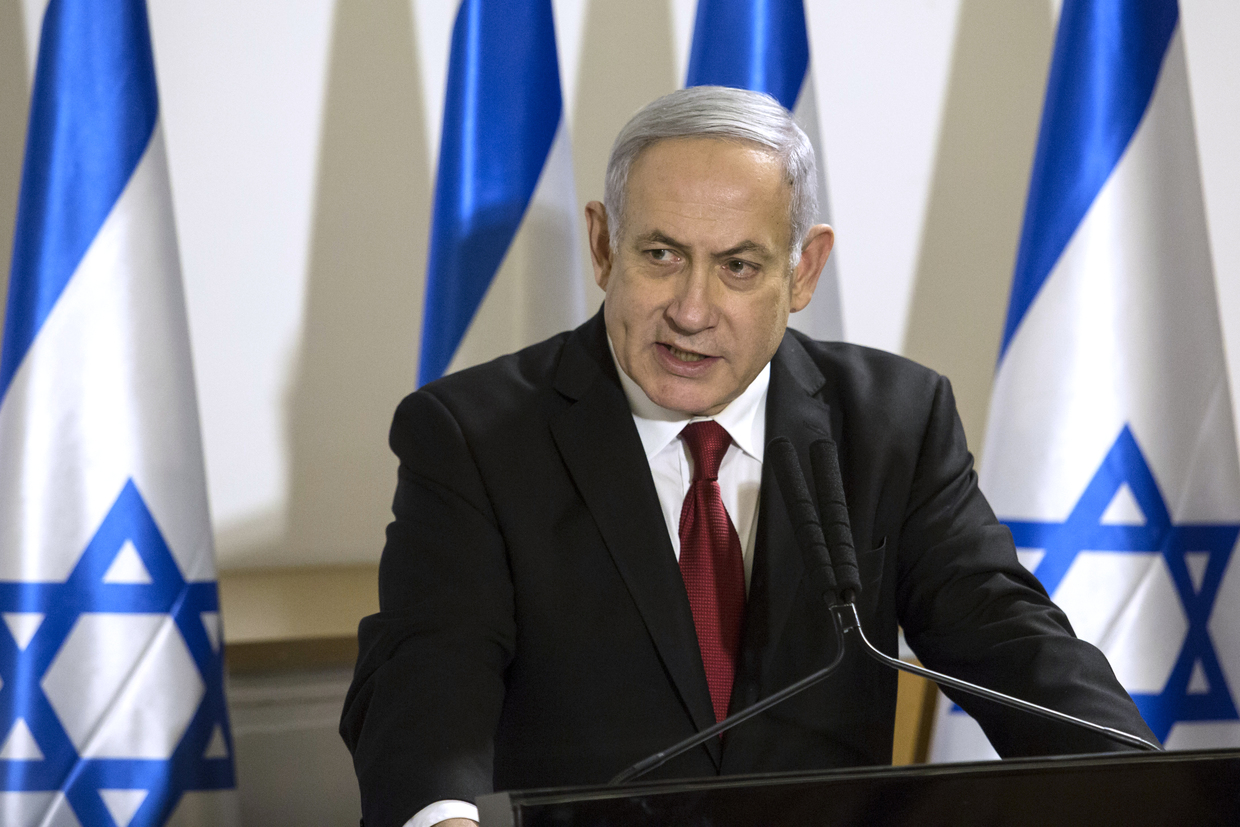
For many years, Iran has avoided getting directly involved in wars. Over the past decade, the authorities have focused on improving the quality of life in the country and fighting sanctions; last year, Iran became a full member of the SCO and BRICS organizations, demonstrating that it is striving for political dialogue. This is why Iran has actively encouraged the formation and development of proxy military forces that would protect its interests in the region. The IRGC wants to use these forces to undertake indirect action against Israel. A retaliatory strike would most likely be carried out by Yemen’s Houthi movement (the Ansar Allah group) and the Lebanese Hezbollah movement. But the Houthis are 2,000km away, which greatly reduces the effectiveness of any attack, and it makes sense to currently preserve Hezbollah’s forces. Commenting on the attack on the Iranian consulate, Hezbollah leader Hassan Nasrallah said that Tehran would respond to the Israeli strike directly. In his opinion, it was not just an attack on Syria, but also a strike on “Iranian soil.” Nasrallah further argued that it signified a “new level of terror” aimed against “the head of Iranian advisers in Lebanon and Syria.” According to Nasrallah, the Americans and Israelis understand that Iran will soon respond, but the best strategy of resistance would be to avoid “a classic military conflict.” However, what kind of a “direct response” are we talking about if at the same time Nasrallah says that there will be no “classic” – i.e. mirror, or direct – strike? It is most likely that Tehran is still considering various options, considering that it wants to avoid a major conflict by all means.
If Iran enters the conflict directly, this may lead to a long-term escalation of the situation. However, it is quite possible that the IRGC may get involved in the Palestinian-Israeli conflict. In recent days, Iranian Foreign Minister Hossein Amir-Abdollahian held talks with colleagues from the UAE, Saudi Arabia, Iraq, and Qatar. At the same time, Iran’s president had a telephone conversation with Turkish President Recep Tayyip Erdogan. Obviously, if Israel continues its aggression against Iran and the two countries go to war, the entire Muslim world – and that means both adherents of Sunni and Shia Islam – will side with Tehran. Non-Arab countries like Türkiye, Pakistan, and even faraway Indonesia will support Iran as well. Does Netanyahu – who has faced criticism even in the West for his failures and rash actions in Gaza – really want to turn the entire Islamic world against Israel? That is unlikely. Meanwhile, Israel has temporarily suspended the work of 28 diplomatic missions around the world. Consulates have been closed to the public in Baku, Yerevan, and Alma-Ata for an indefinite period of time. Israel has also decided to limit the number of visitors to its embassy in Russia. These measures have been implemented for security reasons – to safeguard the Israeli diplomatic missions from possible Iranian attacks. In other words, Israel has indirectly made it clear that the territories of Azerbaijan and Armenia – which share a border with Iran – may be attacked by Iran. In this case, the conflict could escalate from a local to a global level. However, it is unlikely that Iran would be interested in this.
In the past few days, Netanyahu, Israeli Defense Minister Yoav Gallant, and Chief of the General Staff of the IDF Herzi Halevi have stated that their country is ready to handle any scenario of Iranian retaliation. Perhaps Netanyahu believes that the Islamic world’s support of Tehran will be limited to words – which may be true. But in such circumstances, taking risks may lead to highly unpredictable consequences. So far, both sides have only attempted to aggravate the situation. The further course of events will largely depend on Iran’s response.
